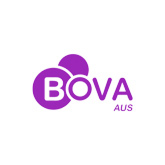Effectiveness of fluoxetine chewable tablets in the treatment of canine separation anxiety

The most common signs associated with separation anxiety (SA) are destruction/rearranging behavior, vocalization, excessive salivation, inappropriate defecation, and urination. To assess a treatment for SA, this multi-center, placebo-controlled, double-blind, randomized parallel-arm study was undertaken with 208 client-owned dogs diagnosed with SA. After a 14-day pre-treatment period in which dog owners recorded the occurrence of 4 SA behaviors (destruction/rearranging behavior, excessive salivation, inappropriate defecation, inappropriate urination) daily treatment with either fluoxetine chewable tablets (FCT) at 1–2 mg/kg or placebo was given for 6 weeks. Owners scored and recorded the severity of overall (overall severity score, OSS) and individual SA behaviors weekly. At any weekly treatment interval, R58% of FCT-treated dogs had improved OSS versus pre-treatment, and compared with placebo dogs had a higher incidence of improved OSS at each week (significant at Weeks 1 and 4; P % 0.044). FCT-treated dogs showed significant improvement in incidence of destructive/rearranging behavior (P % 0.038 at Weeks 4–6) and inappropriate urination (P 5 0.045 at Week 3). Serious adverse events consisted of seizures in 1 FCT-treated dog and 1 placebo-treated dog. Neither incident had a clear association with FCT treatment. In conclusion, FCT at 1–2 mg/kg/day showed some efficacy in improving overall SA severity scores in dogs, even when used in patients not receiving behavior modification training. However, other controlled studies have shown optimal benefits from FCT administration in conjunction with behavior modification. FCT represent a viable therapy for a condition that veterinary behaviorists rank as the second most common canine behavioral disorder.
Click here to be directed to the study.

